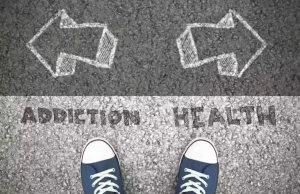Sober living
Recognizing Alcoholism as a Disease

People with anxiety disorders may have both psychological symptoms, such as apprehensiveness and irritability, and somatic symptoms, such as fatigue and muscular tension. You don’t need to have every one of these signs to have alcohol poisoning. It affects people differently but can become life-threatening very quickly. Let your loved ones know that if they see any of these symptoms, they should call 911 or get you to a hospital right away. You can choose from different types of therapy such as alcohol counseling, cognitive behavioral therapy, mindfulness-based therapy, or couples or family therapy.
A model of care for co-occurring AUD and other mental health disorders
- Sometimes people drink alcohol to help with the symptoms of stress, anxiety, and depression.
- When you drink too much alcohol, it can throw off the balance of good and bad bacteria in your gut.
- Furthermore, the greater the abuse or neglect experienced, the more severe their drinking problem was.
People with bipolar disorder and AUD may experience longer mood episodes and a higher risk of suicide. To have a full picture for patient care, patients with AUD should be screened for other substance use. Stigma can be reduced with normalization is alcoholism a mental illness statements such as “Many people try (cannabis or painkillers in ways that are not prescribed) at some point in their lives; is that something you have tried? ” See the Resources section, below, for SUD screening and assessment tools.
I’m In Recovery
Your work will extend beyond Queensland, influencing national reform efforts in these critical areas. People who are clinically alcohol dependent can die if they suddenly, completely stop drinking. If you experience fits, shaking hands, sweating, seeing things that are not real, depression, anxiety, or difficulty sleeping after a period of drinking and while sobering up, then you may be clinically alcohol dependent and should NOT suddenly, completely stop drinking. Talk to a GP or your local community alcohol service who will be able to get help for you to reduce your drinking safely. Second, the medical records indicated that the patient’s previous bout of depression and suicidal ideation had improved with abstinence and supportive and group psychotherapy during his prior hospitalization. At that time, the patient had been transferred to the hospital’s alcoholism treatment unit after 2 weeks, where he had learned some of the principles that had led to his longest abstinence of 18 months.
Alcohol Use Disorder Complications

Sometimes people drink alcohol to help with the symptoms of stress, anxiety, and depression. Alcohol changes the way your brain cells signal to each other, which can make you feel relaxed. When psychosis is suspected, a general physical and neurological exam should be performed to exclude medical causes such as subdural hematoma, seizures, or hepatic encephalopathy—any of which may be a consequence of AUD.
It may shift from stimulant to sedative in line with whether blood alcohol content is rising or falling. Given the power of alcohol on the brain, people who drink heavily may come to rely on it to regulate their mood. Heavy drinking can fuel changes in the brain—about half of people who meet the criteria for alcoholism show problems with thinking or memory, research suggests. The ability to plan ahead, learn and hold https://ecosoberhouse.com/ information (like a phone number or shopping list), withhold responses as needed, and work with spatial information (such as using a map) can be affected. Brain structures can shift as well, particularly in the frontal lobes, which are key for planning, making decisions, and regulating emotions. But many people in recovery show improvements in memory and concentration, even within the first month of sobriety.
As is usually the case (Anthenelli 1997; Helzer and Przybeck 1988), the patient in this example does not volunteer his alcohol abuse history but comes to the hospital for help with his psychological distress. The acute stressor leading to the distress is his wife’s leaving him; only further probing during the interview uncovers that the reason for the wife’s action is the man’s excessive drinking and the effects it has had on their relationship and family. Thus, a clinician who lacks adequate training in this area or who carries too low a level of suspicion of alcohol’s influence on psychiatric complaints may not consider alcohol misuse as a contributing or causative factor for the patient’s psychological problems. Cognitive behavioral therapy is an approach for treating both alcoholism and mental illness. It focuses on identifying and modifying unhealthy thoughts, emotions, and behaviors that contribute to these conditions. CBT helps you identify the specific triggers or situations that lead to alcohol use for you or that make your mental health symptoms worse.

All they know is there is a sudden urge for a drink, a physical compulsion. According to a systematic review from 2017, antipsychotic medications and alcohol use cessation are the most effective treatment options for alcohol-induced psychotic disorder. In delirium tremens, delirium is the primary condition and alcohol-induced psychosis occurs as a symptom. It’s known as the most severe form of alcohol withdrawal, presenting with a sudden onset of intense confusion, agitation, and cognitive impairment, known as delirium. It’s not caused by alcohol use, though research suggests people living with schizophrenia are nearly three times more likely to develop AUD or another substance use disorder (SUD).


